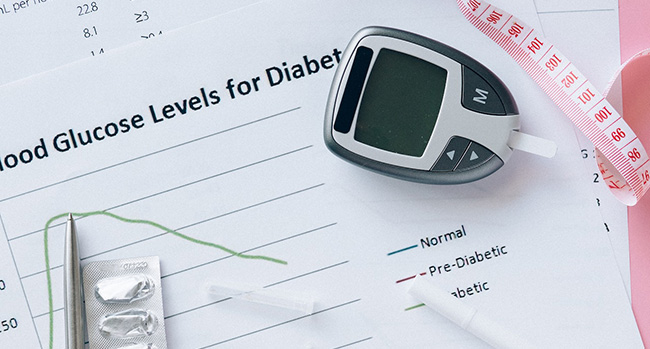
Type 2 diabetes is a chronic condition characterized by high blood sugar levels due to insulin resistance. Poor glycemic control in type 2 diabetic patients, indicated by elevated glycosylated hemoglobin (HbA1c) levels, is associated with an increased risk of complications and worsened health outcomes.
Clinical Trial
A clinical trial evaluated whether a specially designed multicomponent healthcare intervention can improve glycemic control in patients with poorly controlled type 2 diabetes. The trial included patients from 11 primary care centers. The participants had type 2 diabetes and HbA1c levels exceeding 9% (> 75 mmol/mol).The intervention group comprised 225 patients, receiving a professional and patient-centered approach, which included a dedicated monographic visit to encourage therapeutic intensification by physicians. The control group of 181 patients experienced an identical intervention, except for omitting the dedicated visit. The primary outcome measured was the comparison of HbA1c reductions between the two groups after a 12-month follow-up period.
Results
The mean age of the participants was 59.5 years, with a mean diabetes duration of 10.7 years and a mean HbA1c level of 10.3% (89.0 mmol/mol). After 12 months, patients in the intervention arm achieved significant reductions in HbA1c compared to those in the control group. Additionally, more intervention participants achieved an HbA1c level below 8% and received treatment with more than three antidiabetic therapies. The intervention was the only variable associated with increased odds of achieving an HbA1c level below 8%.Conclusion
A multicomponent intervention, including a dedicated visit to reduce therapeutic inertia among primary care physicians, can effectively improve glycemic control in patients with poorly controlled type 2 diabetes. The intervention led to significant reductions in HbA1c levels, an increased proportion of patients achieving HbA1c levels below 8%, and more frequent use of multiple antidiabetic therapies. These findings highlight the potential of targeted healthcare interventions in addressing the challenges associated with glycemic control in type 2 diabetes, ultimately improving patient outcomes and quality of life.__________
Diabetes, Obesity and Metabolism, Apr-23
About Diabetes
Innovative Clinical Trials Study New Treatments for Diabetes
Diabetes Clinical Trial Gave Me a Fearless Life
Managing Depressing in Type 2 Diabetes with Melissa Officinalis Extract
The Impact of a High-Fiber Diet on Type 2 Diabetes
The Potential of Sleep-Opt-In for Type 1 Diabetes Management
Efficacy of Dorzagliatin as an Add-On Therapy in Diabetes
Benefits of Advanced Hybrid Closed Loop System for Type 1 Diabetes
Intermittent Fasting Shows Promise in Managing Type 2 Diabetes with Insulin Treatment
SGLT2 has been found to Protect Kidney Function in Diabetes
Clinical Trial Shows How to Reduce Risk of Kidney Stones in Diabetes
Clinical Trial Confirms the Link Between Obesity and Diabetes
Innovative Clinical Trials Study New Treatments for Diabetes
Medical Breakthrough for Type 1 Diabetes Patients
Could a Simple Blood Test Predict Diabetes?
About Diabetes
Innovative Clinical Trials Study New Treatments for Diabetes
Diabetes Clinical Trial Gave Me a Fearless Life
Managing Depressing in Type 2 Diabetes with Melissa Officinalis Extract
The Impact of a High-Fiber Diet on Type 2 Diabetes
The Potential of Sleep-Opt-In for Type 1 Diabetes Management
Efficacy of Dorzagliatin as an Add-On Therapy in Diabetes
Benefits of Advanced Hybrid Closed Loop System for Type 1 Diabetes
Intermittent Fasting Shows Promise in Managing Type 2 Diabetes with Insulin Treatment
SGLT2 has been found to Protect Kidney Function in Diabetes
Clinical Trial Shows How to Reduce Risk of Kidney Stones in Diabetes
Clinical Trial Confirms the Link Between Obesity and Diabetes
Innovative Clinical Trials Study New Treatments for Diabetes
Medical Breakthrough for Type 1 Diabetes Patients
Could a Simple Blood Test Predict Diabetes?
